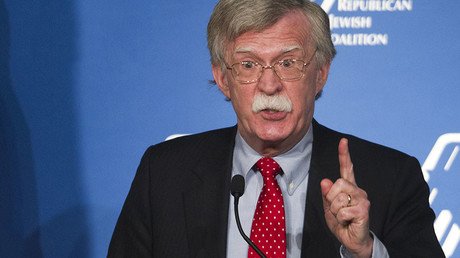‘Conspiracy theory’: Trump dismisses CIA claim of Russian hacking
President-elect Donald Trump shrugged off reports citing anonymous CIA officials accusing Russia of hacking the US presidential election, a day after calling the story “ridiculous” on TV.
“Can you imagine if the election results were the opposite and WE tried to play the Russia/CIA card. It would be called conspiracy theory!” Trump tweeted on Monday morning.
Can you imagine if the election results were the opposite and WE tried to play the Russia/CIA card. It would be called conspiracy theory!
— Donald J. Trump (@realDonaldTrump) December 12, 2016
On December 9, The Washington Post reported on a secret assessment by the CIA, which concluded that Russian intelligence hacked the servers of the Democratic National Committee and Hillary Clinton's chief of staff specifically to help Trump win the presidency.
READ MORE: ‘It’s ridiculous’: Trump on CIA claims that Moscow helped him win US Presidency
“These are the same people that said Saddam Hussein had weapons of mass destruction,” Trump’s transition team replied, before adding, “It’s now time to move on and Make America Great Again.”
The president-elect has dismissed the allegations as “ridiculous,” accusing the Democrats of cooking up the claim to explain their stunning electoral defeat.
“I don’t believe it,” he told Fox News Sunday host Chris Wallace. “I think it’s just another excuse.”
President-Elect Trump: It's ridiculous to say Russia intervened in the election, I think it's just another excuse. We had a massive victory. pic.twitter.com/YqyfWyjtGQ
— Makada 🇺🇸 (@_Makada_) December 11, 2016
Trump is not alone in questioning the claims of anonymous officials.
Anyone convinced US Govt possessed conclusive evidence of Russia hacking for Trump should be demanding to know why Obama didn't say/do more.
— Glenn Greenwald (@ggreenwald) December 12, 2016
There is no link between Russia, #Wikileaks and Trump. There are many direct links between Hillary, Podesta and Russia. Now get to work CIA
— H. A. Goodman (@HAGOODMANAUTHOR) December 12, 2016
Trump goes after military-industrial complex: no wonder the CIA is out to get him! https://t.co/Det9vVCn9i
— Justin Raimondo (@JustinRaimondo) December 12, 2016
Sen. Cardin (D-MD) today: "What we do know is, that Russia hacked us."
— Michael Tracey (@mtracey) December 12, 2016
Really? "Hacked us?" Who is "us"? John Podesta? This makes no sense.
Russia hacks:
— Max Fisher (@Max_Fisher) December 12, 2016
1. Happened *before* Trump said Ru should hack Clinton
2. Didnt hack vote itself. People freely pulled those levers for Trump
Former UK ambassador to Uzbekistan Craig Murray called the CIA claims a “blatant lie” and the Post story “paranoid nonsense,” pointing out that, if the US intelligence knew the identity of the hackers, Washington would have arrested them or demanded their extradition.
“I know who leaked them,” Murray told the Guardian, referring to Clinton’s emails. “I’ve met the person who leaked them, and they are certainly not Russian and it’s an insider. It’s a leak, not a hack; the two are different things,” he said.
Earlier on Friday, President Barack Obama’s homeland security adviser Lisa Monaco revealed that the White House had ordered the intelligence community to conduct a “full review of what happened during the 2016 election process.”
While Senate Majority Leader Mitch McConnell (R-Kentucky) called the allegations of Russian interference “disturbing,” he rejected calls for a special committee to be formed to investigate the matter. The Senate Intelligence Committee is “more than capable of conducting a complete review,” he said on Monday, according to The Hill.
Trump spokesman Jason Miller shrugged off the claims, saying they are coming from “people who are bitter their candidate lost.”
“This overall narrative, this is clearly an attempt to delegitimize Trump’s win. That’s what’s going on here. First there was the recount nonsense, then the discussion of the popular vote, now it’s anonymous sources with conflicting information trying to raise other issues,” Miller said.
Meanwhile, ten members of the Electoral College – which is scheduled to vote on December 19 – have sent an open letter to Director of National Intelligence James Clapper, requesting a briefing on any relations between Trump and Russia.
“The Electors require to know from the intelligence community whether there are ongoing investigations into ties between Donald Trump, his campaign or associates, and Russian government interference in the election, the scope of those investigations, how far those investigations may have reached, and who was involved in those investigations,” the letter said.
The term “conspiracy theory” was given a derogatory connotation by the CIA itself. In a 1967 memo, the agency discussed “countering and discrediting claims of the conspiracy theorists” who were questioning the results of the Warren Commission report on the 1962 assassination of President John F. Kennedy. Dispatch 1035-960 was made public in 1976, following a Freedom of Information Act request from the New York Times.













